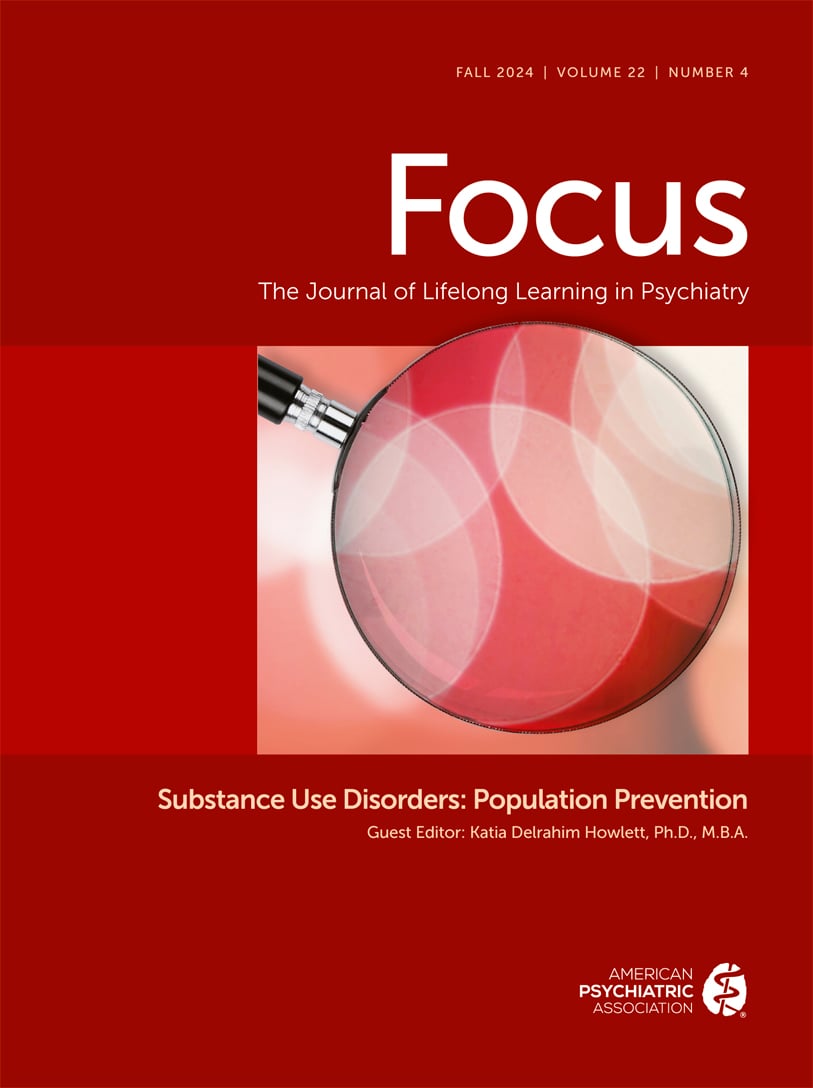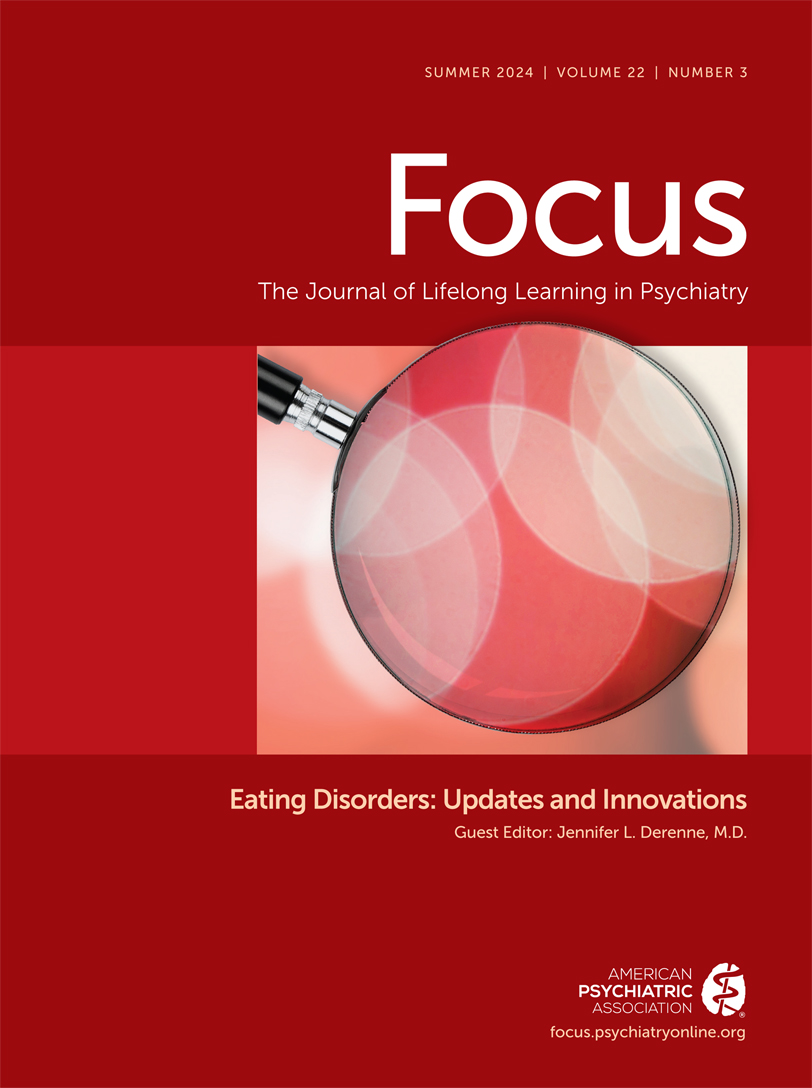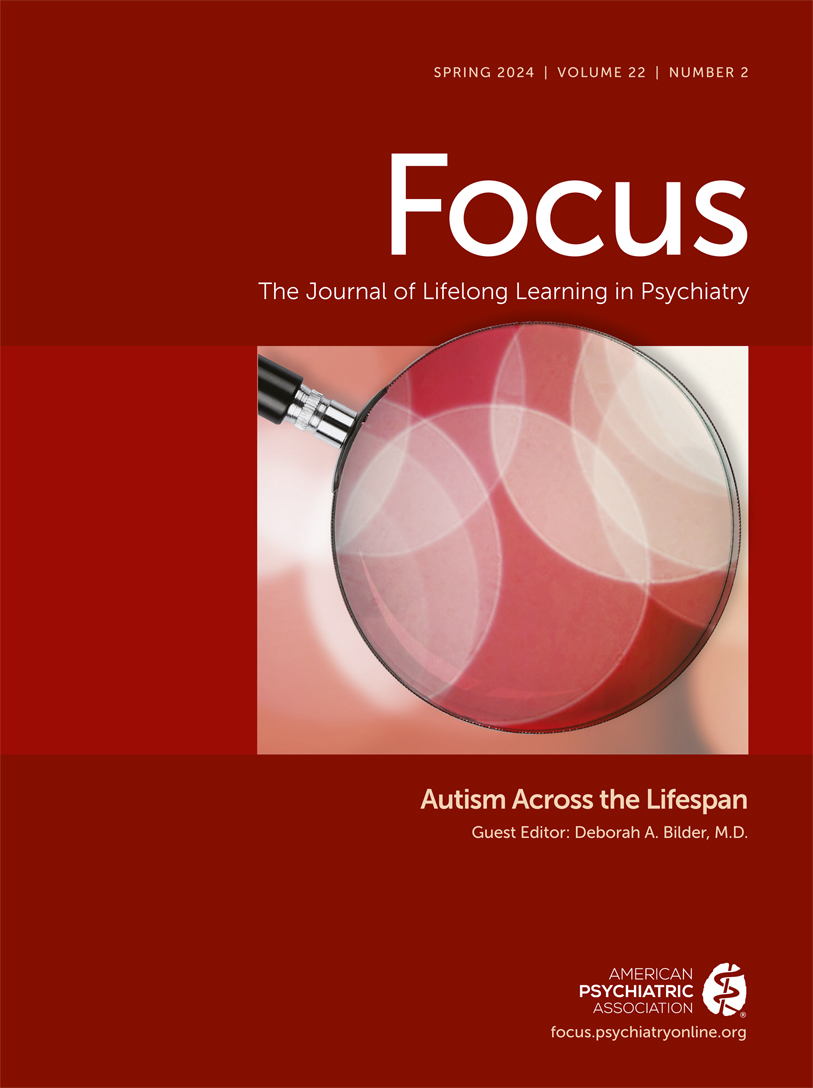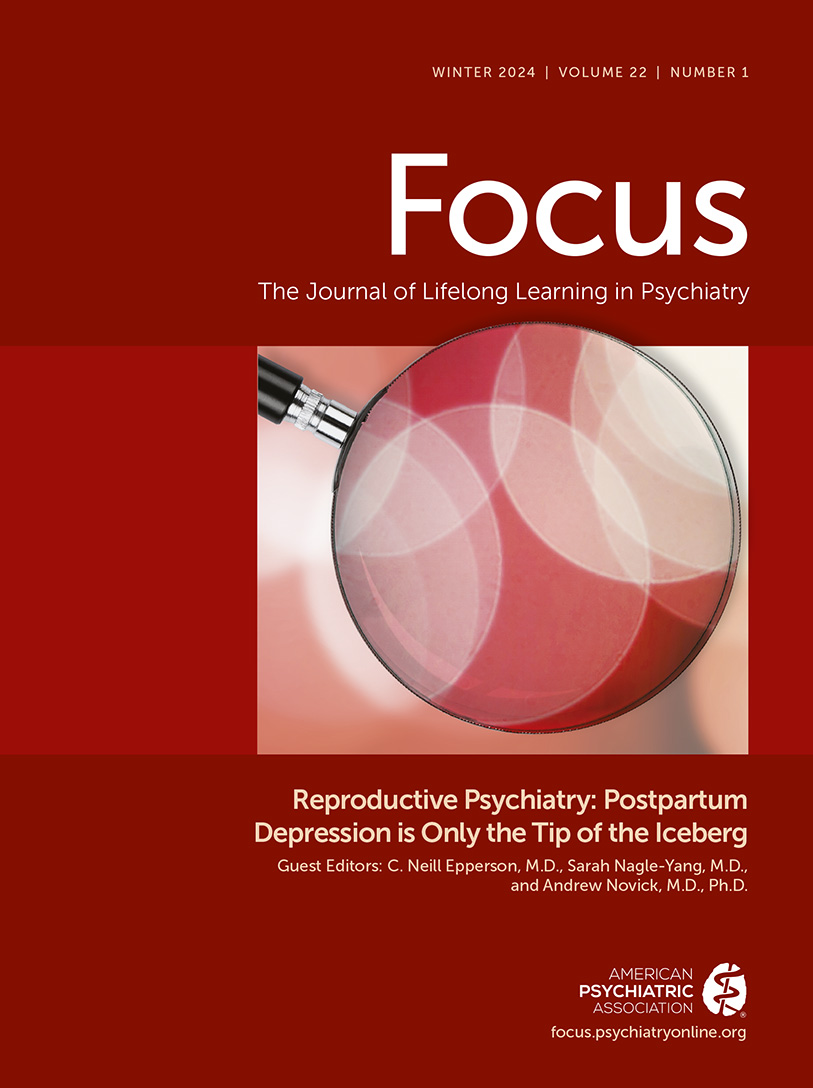Focus
- Volume 17
- Number 2
- April 2019
From the Guest Editor
Review
Publication date: 01 April 2019
Pages88–97Substance use disorders are overrepresented among individuals with mental illness, and diagnosis and treatment of co-occurring disorders can be challenging. This review describes the epidemiology and treatment of co-occurring disorders, with a focus on ...
https://doi.org/10.1176/appi.focus.20180042Clinical Synthesis
Publication date: 01 April 2019
Pages98–103The authors provide an overview of pharmacological and psychosocial behavioral treatments for patients with cannabis use disorder, emphasizing aspects of clinical management unique to this patient population.
https://doi.org/10.1176/appi.focus.20180038Publication date: 01 April 2019
Pages104–109Novel buprenorphine delivery systems—two depot formulations and a long-acting, matchstick-sized implant—have demonstrated efficacy in the treatment of opioid use disorder while reducing the risk of medication nonadherence, diversion, and accidental ...
https://doi.org/10.1176/appi.focus.20180043Publication date: 01 April 2019
Pages110–116This article examines the long-term outcomes of endocarditis in patients who inject drugs; issues that arise during hospitalization; and management of opioid use disorder, acute pain, and ongoing outpatient treatment.
https://doi.org/10.1176/appi.focus.20180040Publication date: 01 April 2019
Pages117–127Substance use among college students is associated with negative outcomes, and several risk factors, such as academic and peer pressure, are specific to this population. This article describes specific challenges and approaches to treatment for this ...
https://doi.org/10.1176/appi.focus.20180037Publication date: 01 April 2019
Pages128–133A report from the President’s Commission on Combating Drug Addiction and the Opioid Crisis calls for addiction treatment that addresses all mental health needs. Specialists in addiction medicine and addiction psychiatry are best positioned to develop and ...
https://doi.org/10.1176/appi.focus.2019000321st-Century Psychiatrist
Publication date: 01 April 2019
Pages134–140The national failure to adequately respond to the opioid epidemic has exposed major deficits in the U.S. health care education system. Treatment services are inadequate; clinicians are ill prepared and uninformed about existing effective treatments; and ...
https://doi.org/10.1176/appi.focus.20180039Ask the Expert
Ethics Commentary
Communication Commentary
Bibliography
Abstracts
Influential Publications
Publication date: 01 April 2019
Pages158–162(Reprinted with permission from Am J Psychiatry 2018; 175:86–90)
https://doi.org/10.1176/appi.focus.17205Publication date: 01 April 2019
Pages163–168Cannabis use has been continuously increasing, and cannabis use disorder (CUD) has become a public health issue. Some psychosocial interventions have demonstrated the ability to reduce cannabis use; however, there are no pharmacotherapies approved for the ...
https://doi.org/10.1176/appi.focus.17202Publication date: 01 April 2019
Pages169–182Cannabis is the most commonly used substance of abuse in the United States after alcohol and tobacco. With a recent increase in the rates of cannabis use disorder (CUD) and a decrease in the perceived risk of cannabis use, it is imperative to assess the ...
https://doi.org/10.1176/appi.focus.17204Publication date: 01 April 2019
Pages183–192Objective: Although counseling is a required part of office-based buprenorphine treatment of opioid use disorders, the nature of what constitutes appropriate counseling is unclear and controversial. The authors review the literature on the role, nature, ...
https://doi.org/10.1176/appi.focus.17206Publication date: 01 April 2019
Pages193–199Background: Addiction specialists frequently find themselves faced with suicidal behavior in their addictions patients. Although many addiction treatment programs will not accept clients with recent suicidal behavior, up to 40% of patients seeking ...
https://doi.org/10.1176/appi.focus.17203Past Issues
View Issues Archive
Vol. 22 | No. 4

Vol. 22 | No. 3

Vol. 22 | No. 2
